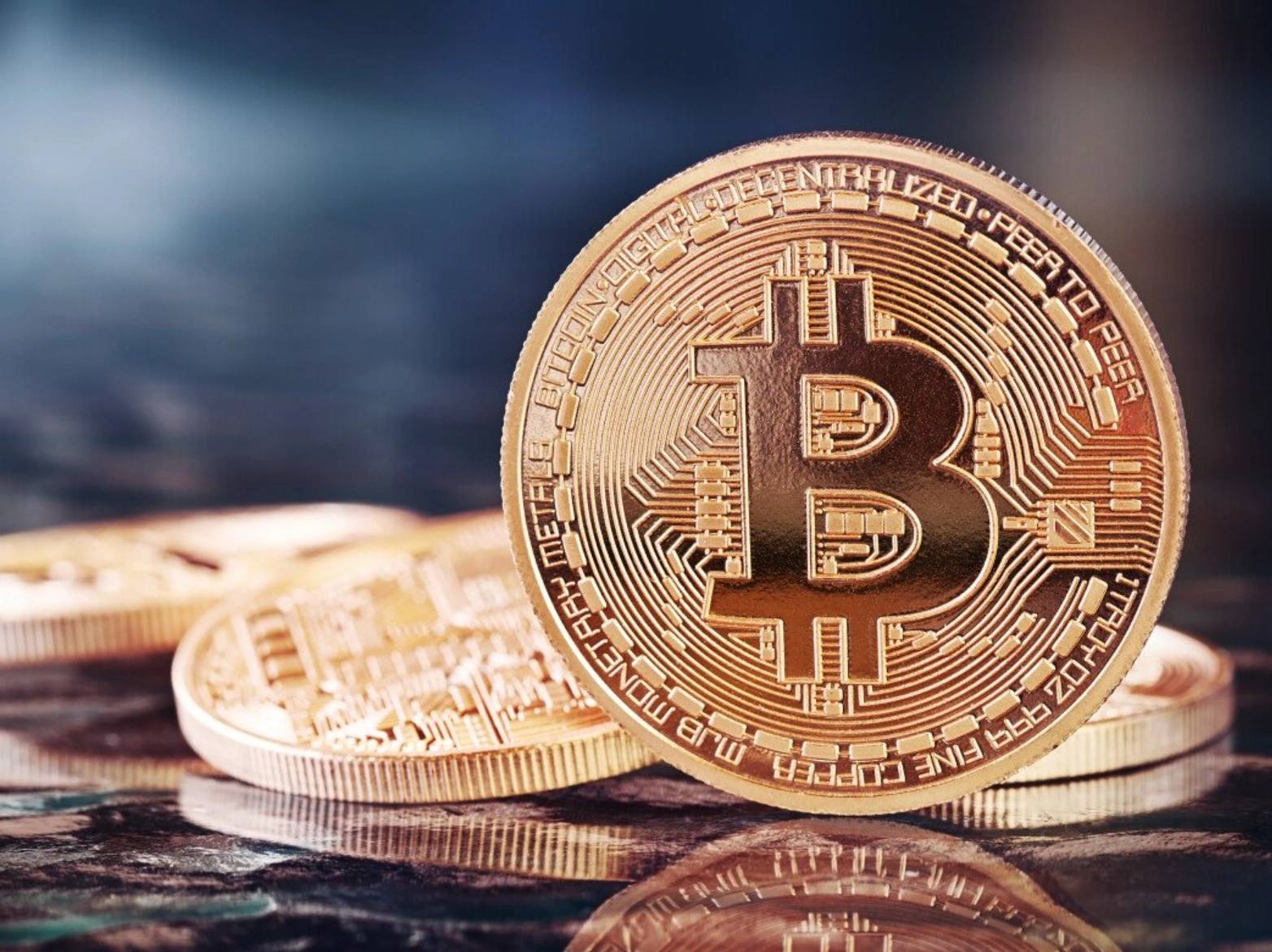위키 구독하기
Share wiki
Bookmark
Bitcoin (BTC)
0%
Bitcoin (BTC)
**비트코인(BTC)**은 비트코인 블록체인의 기본 자산이며, 중앙 은행이나 관리자가 없는 세계 최초의 디지털 통화입니다. 이는 개인, 그룹 또는 단체의 통제를 받지 않는 결제 수단으로 사용됩니다. 블록체인 채굴자에게 거래를 검증한 것에 대한 보상으로 주어지며, 다양한 거래소에서 구매할 수 있습니다. 비트코인은 2009년에 사토시 나카모토라는 이름을 사용하는 익명의 개발자 또는 개발자 그룹에 의해 대중에게 소개되었습니다. [1][2]
역사
2009년: 소개 및 제네시스 블록
- 2009년 1월 3일: 비트코인 네트워크의 창조를 알리는 비트코인의 제네시스 블록이 채굴되었습니다. 이 블록은 비트코인 네트워크를 시작했으며, BTC 공급량은 21,000,000개로 제한되도록 프로그래밍되어 있습니다. [6]
2009-2017년: 초기 도입 및 성장
- 2009-2017년: 이 기간 동안 비트코인은 P2P 결제 방식으로 인기를 얻었습니다. 투자자와 투기꾼들은 BTC에 관심을 갖게 되었고, 사람들이 비트코인을 사고팔 수 있게 해주는 암호화폐 거래소가 등장했습니다. 가격이 상승하고 수요가 증가하여 2017년에는 디지털 통화의 가치가 1,000달러를 초과했습니다. [3]
2020년: 기관 투자 및 도입
- 2020년 10월: 금융 서비스 회사인 Square는 비트코인에 5천만 달러를 투자한다고 발표했는데, 이는 당시 총 자산의 약 1%에 해당합니다. [18]
- 2020년 11월: PayPal은 미국 내 모든 사용자가 PayPal 계정에서 직접 비트코인을 포함한 암호화폐를 구매, 보유 및 판매할 수 있도록 했습니다. [20]
- 2020년 12월: 169년 역사의 보험 회사인 MassMutual은 일반 투자 계정을 위해 비트코인에 1억 달러를 투자했습니다. [19]
2021년: Taproot 업그레이드
- 2021년 11월: Taproot 업그레이드가 활성화되어 개인 정보 보호를 강화하고 더 복잡한 스마트 계약을 가능하게 하는 슈노어 서명을 도입했습니다. 이 업그레이드는 비트코인의 확장성과 효율성을 향상시켰습니다. [16]
2022년: 시장 변동성 및 붕괴
- 2022년 5월: TerraUSD(UST) 스테이블 코인의 붕괴로 투자자들 사이에 공황이 발생하여 비트코인 가격이 폭락했습니다. [12]
- 2022년 6월: 비트코인의 가치는 인플레이션 상승과 경기 침체 가능성에 대한 우려 속에서 20,000달러 아래로 떨어졌습니다. 이러한 침체는 다양한 암호화폐 회사에 영향을 미쳐 해고를 초래하고 시장에 더 큰 불안정을 야기했습니다. [12] [1]
2023년: 비트코인 ETF 승인
- 2023년 10월: 미국 증권거래위원회(SEC)는 최초의 비트코인 상장지수펀드(ETF)를 승인하여 투자자들이 자산을 직접 보유하지 않고도 비트코인에 노출될 수 있도록 했습니다. [1] [2]
2024년: 비트코인 가격 급등 및 전략적 개발
- 2024년 1월: 현물 비트코인 ETF 거래가 시작되어 전통적인 투자자에게 더 접근하기 쉬운 투자 옵션을 제공함으로써 암호화폐 산업의 주요 발전으로 기록되었습니다.
- 2024년 12월: 트럼프 행정부가 도입한 새로운 암호화폐 친화적 정책에 대한 낙관론에 힘입어 비트코인 가격이 10만 달러를 넘어섰습니다. [13]
- 2024년 12월: BlackRock은 관심 있는 투자자에게 포트폴리오의 최대 2%를 비트코인에 할당할 것을 권장했습니다. [2]
2025년: 전략적 비트코인 보유고
- 2025년 3월: 트럼프 대통령은 전략적 비트코인 보유고를 설정하는 행정 명령에 서명하여 미국을 약 200,000 BTC를 보유한 가장 큰 알려진 국가 보유자로 자리매김했습니다.
유틸리티 및 영향
비트코인은 원래 P2P 결제 방식으로 설계 및 출시되었습니다. 그 사용 사례는 가치 상승과 다른 블록체인 및 암호화폐와의 경쟁으로 인해 확장되었습니다. 비트코인은 상품 및 서비스에 대한 지불 수단으로 상인, 소매업체 및 상점에서 허용됩니다. [3]
비트코인 채굴
비트코인(BTC)은 사용자가 자신의 컴퓨팅 파워를 제공하여 작업 증명을 통해 비트코인 거래를 블록체인에 검증하고 기록하는 경쟁에서 보상으로 생성됩니다. 이 활동을 채굴이라고 하며, 성공적인 채굴자는 거래 수수료와 새로 생성된 비트코인으로 보상을 받습니다. [5]
기관 투자 및 도입
최근 몇 년 동안 여러 주요 기업과 기관이 비트코인에 상당한 투자를 하여 장기적인 가치에 대한 신뢰가 커지고 있음을 시사합니다. 비즈니스 인텔리전스 회사인 MicroStrategy는 주요 재무 준비 자산으로 비트코인에 막대한 투자를 해온 주목할 만한 지지자였습니다. [17]
Taproot 업그레이드 세부 정보
2021년 11월에 활성화된 Taproot 업그레이드는 비트코인 네트워크에 몇 가지 주요 변경 사항을 가져왔습니다. 복잡한 거래를 단순한 거래와 구별할 수 없게 만들어 개인 정보 보호를 강화하는 슈노어 서명을 도입하여 다중 서명 거래를 읽을 수 없게 만듭니다. [16]
환경 문제 및 채굴
비트코인 채굴의 환경적 영향은 여전히 논쟁의 주제입니다. 2023년에는 여러 채굴 회사가 비트코인 채굴과 관련된 탄소 발자국을 줄이기 위해 재생 에너지원을 사용하려는 계획을 발표했습니다. 이러한 변화는 암호화폐 산업의 지속 가능한 관행을 향한 광범위한 추세의 일부입니다.
비트코인과 금융 자유
2022년 비트코인은 캐나다의 "자유 호송대" 시위 기간 동안 금융 자유를 위한 도구로 주목을 받았습니다. 캐나다 정부는 시위와 관련된 은행 계좌를 동결했고, 지지자들은 운동 자금을 조달하기 위해 비트코인 및 기타 암호화폐로 눈을 돌렸습니다. 이 사건은 검열에 저항하는 금융 도구로서 비트코인의 잠재력을 강조했습니다. [3] [11]
잘못된 내용이 있나요?
